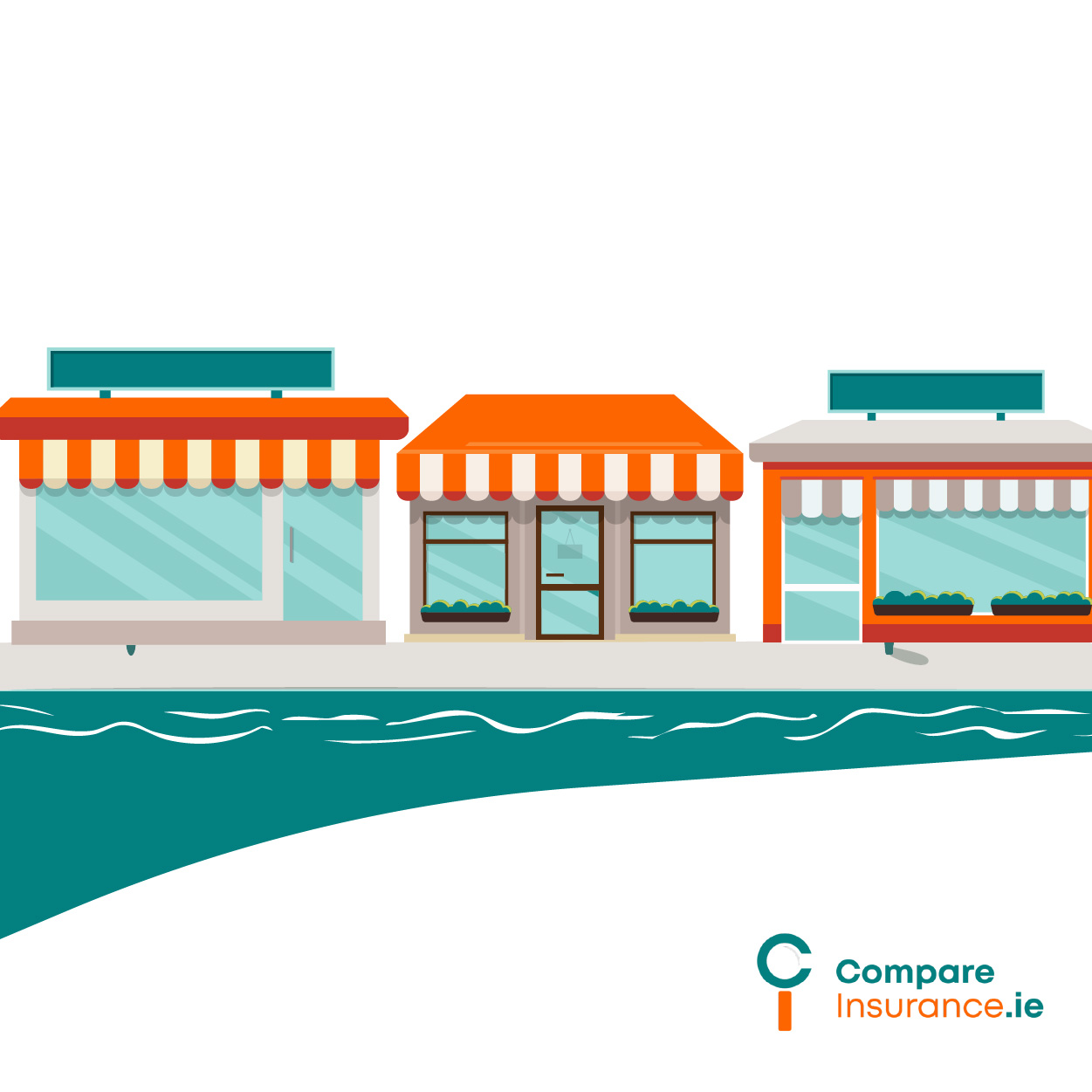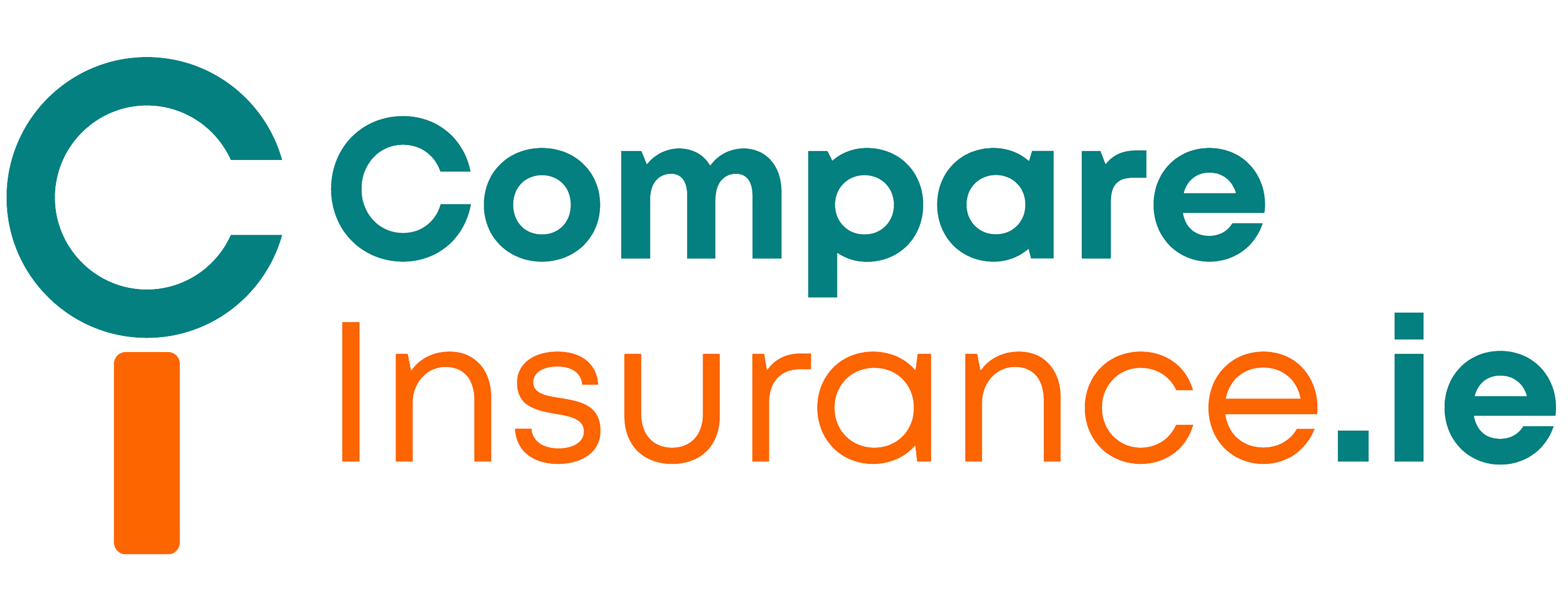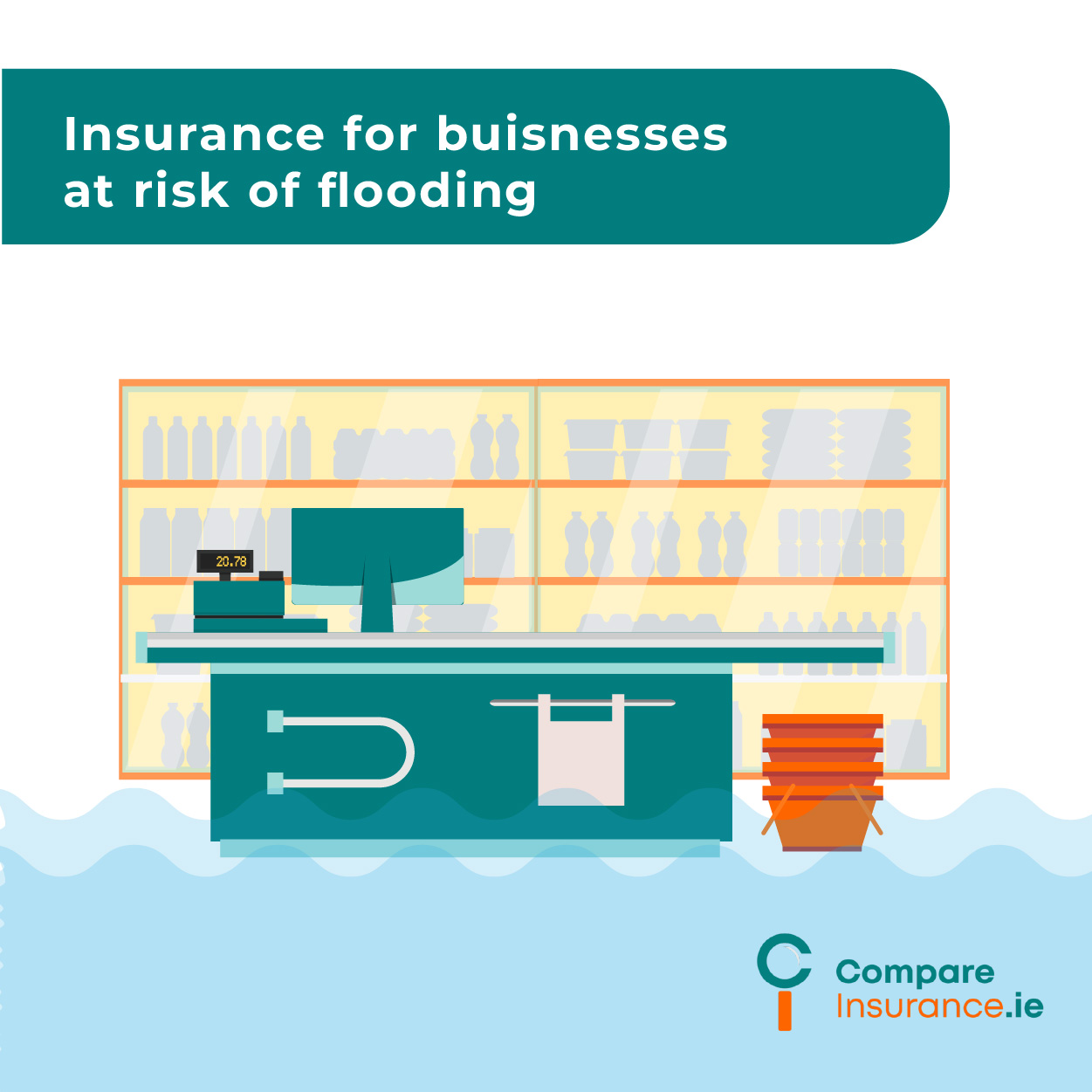Many Irish businesses in identified flood risk areas or who have previously experienced flooding may struggle to get insurance due to increasingly frequent weather events such as high rainfall and widespread flooding.
We have all seen media coverage of flooding in towns and cities leading to severe consequences for local businesses such as the aftermath of 2023’s Storm Babet for Midleton in Cork.
Businesses may find that they are hit with higher premiums and larger excesses for business insurance that includes flood cover if they can obtain flood insurance at all.
Flooding insurance difficulties
According to recent Central Bank research, 1 in 20 homes and businesses premises are finding it difficult to obtain insurance cover for flooding. They either face being declined for cover, having limited cover, or extremely high insurance premiums.
This issue currently affects 100,000 properties but the research estimates that this number will increase as the reality of climate change affects the frequency and extent of flooding in Ireland.
Flood protection gap
The research has measured the ‘flood protection gap’, or the shortfall between the cost of damage caused by flooding and the portion covered by insurance, also assessed was the availability of flood insurance (or flood cover on property insurance for homes and businesses).
In conducting the research, the flood risk of each address was analysed and the likelihood of whether each address is able to access flood insurance based on normal underwriting criteria.
Annual cost of flooding
The research estimated the average annual cost of inland flooding at €101 million. 89% of that cost is estimated to be borne by higher flood risk properties with little or no access to insurance.
There are also counties where the flood protection gap is concentrated, with 54% of the protection gap concentrated in just five counties (Dublin, Cork, Kildare, Clare and Louth).
The study also cautioned that severe events could increase this figure, with a €510m loss expected about once every 25 years.
Coastal flooding was excluded from the research and the effects of climate change may also make flooding more frequent and severe, meaning that the picture may be even bleaker for the homes and businesses facing high levels of uninsured losses.
Providing flood insurance to businesses
A survey carried out by Deloitte early this year estimated the cost of climate change, including flooding, to Ireland’s insurance industry at €1.5 billion over the next decade.
Insurers surveyed identified government measures including investment in national and local flood defences and the possibility of the Irish government becoming a reinsurer of last resort as a way to address the risks posed by climate change and extreme weather events and improve flood cover for homes and businesses.
Government spending
The Government has committed to spending €1.3 billion on flood relief schemes by 2030 and have had successive meetings with representatives of the insurance industry in an attempt to ensure that flood insurance cover is available for homes and businesses.
The Government has also facilitated the Emergency Humanitarian Flooding Scheme on several occasions to provide financial relief for small businesses and other organisations who have been unable to secure flood insurance and have been impacted by flooding.
Businesses and flooding
UK research suggests that 40% of businesses there do not reopen following a flooding event.
This means that an adequate flood plan for your business is essential, especially if your business is in an area at higher risk of flooding or in a flood zone.

Safety measures
Some of the measures advised in order to ensure the safety of staff and customers as well as reduce potential property damage and business interruption include:
Insure your business with Compare Insurance
It is proving challenging for businesses to find property and flooding insurance. This leaves businesses vulnerable to devastating financial losses following a flooding event.
Compare Insurance may be able to help you find insurance cover in a challenging market. Speak to our qualified business insurance advisors today Commercial property insurance.
We work with Central Bank regulated insurance providers to get you tailored business insurance at affordable prices.

Author: Séamus Ó Doirín | Chief Insurance Editor
Séamus Ó Doirín is a Donegal based QFA who has been writing about insurance since 2020. His main focus is getting people the best value for insurance in the Irish market. His writing covers all areas of insurance and is a valuable part of the Compare Insurance team.



